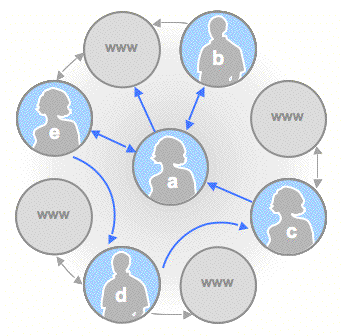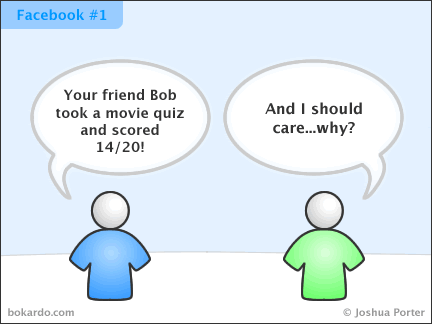There’s been lots of talk recently about the ineffectiveness of advertisements in social media properties like MySpace and Facebook. During their recent quarterly earnings results, Google explained that they are not making as much money from ads on social network sites as they had predicted. Even though this was a blip on an otherwise stellar quarter, Google’s stock took a serious beating.
Why is this so? Why is it that Google monetizes so well on Search while having a hard time on social properties? Given an equal amount of views on Google vs. MySpace, shouldn’t they be able to get about the same number of click-throughs and thus ad revenue?
The difference, of course, is that when people go to Google, they’re actively looking for something. That something isn’t on Google. They are performing a search activity. Thus their task will be to click on a link that seems to promise what it is they’re looking for. It may be the organic results, or it may be an ad that seems close to what they want.
When people are on MySpace, the activity they’re doing isn’t search. It’s something akin to “hanging out” or “networking”. Their task is almost the opposite of search. They are already on the site they want to be on. They don’t need to click on links to take them where they want to go.
In other words, the context is entirely different. When you’re in search mode, you are playing by different rules.
Social ads don’t work as well because people are being social, not searching for something.
Continue Reading: Why Social Ads Don’t Work

